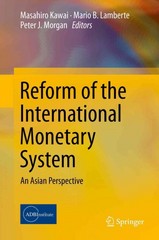Question
Policy theories are academic models that seek to understand why some public policies are implemented or not implemented. Those concerned with an analysis of public
Policy theories are academic models that seek to understand why some public policies are implemented or not implemented. Those concerned with an analysis of public policy use policy theories to understand the intersection of policy-making and public policy. Whereas there are many, many different policy theories; you will focus on elite theory, group theory, and institutional theory.
- Elite theory is premised on the idea that a small group of elites affect public policies. These elites could further understand as political elites (important members of government, "Washington insiders"), social elites (movie stars, musicians, athletes, etc.), or economic elites (Wall Street, the 1%, etc.).
- Group theory is premised on the idea that groups of individuals advocate a common, public policy concern, that then affects public policy. Groups span the political, economic, and social public policy spectrum. Here are a couple of groups that advocate particular, public policies: pro-choice advocates (Planned Parenthood), pro-life advocates (Susan B Anthony List), gun rights advocates (National Rifle Association), and gun control advocates (Everytown for Gun Safety).
- Institutional theory is premised on the idea that institutions affect public policies. Whereas government (both in the capacity of federalism and the executive, legislative, and judicial branches) is typically the focus of institutional theorists; other institutions such as corporations, non-profits, political parties, etc., can also affect public policy. It is the collective interaction of these various institutions that results in policy formation. *See the Unit 4 Overview for a detailed example how Affordable Care Act (Obama Care) resulted from an amalgamation of institutional input.
Thesis
Thesis: This should state your informed opinion about how your examples of public policy can be analyzed by one of the following policy theories: elite theory, group theory, and/or institutional theory
Outline
I.Selecttwospecific examples of public policy from one of the following fields:
a.Economic policy
b.Education policy
c.Environmental policy
d.Foreign policy
e.Healthcare policy
f.Welfare policy
II.For each example, explain how this public policy can be analyzed by one of the following policy theories: elite theory, group theory, and/or institutional theory.
A.First public policy example + chosen policy theory
a.Why is your chosen policy choice better than the other theories?
a.i.Support your response with at least two different reasons.
b.What are the strengths and/or flaws of using this policy theory within your example?
b.i.Support your response with at least two different examples.
c.How does your chosen, policy theory inform the policy cycle within your example?
B.Second public policy example + chosen policy theory
a.Why is your chosen policy choice better than the other theories?
a.i.Support your response with at least two different reasons.
b.What are the strengths and/or flaws of using this policy theory within your example?
b.i.Support your response with at least two different examples.
c.How does your chosen, policy theory inform the policy cycle within your example?
References
Step by Step Solution
There are 3 Steps involved in it
Step: 1

Get Instant Access to Expert-Tailored Solutions
See step-by-step solutions with expert insights and AI powered tools for academic success
Step: 2

Step: 3

Ace Your Homework with AI
Get the answers you need in no time with our AI-driven, step-by-step assistance
Get Started


